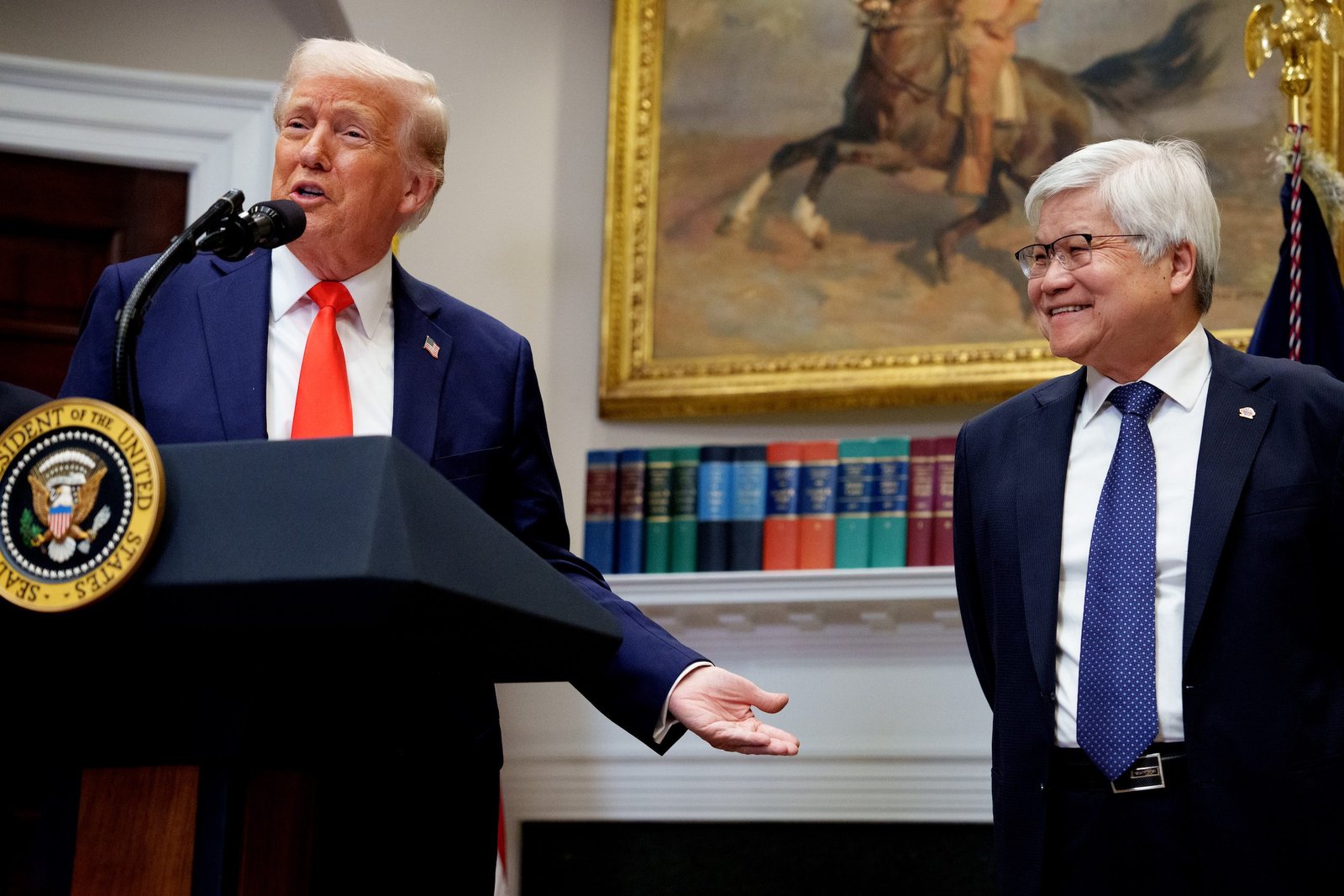President Donald Trump has positioned the United States to lead in the global AI race, championing a vision that promises to reshape our economy, national security, and technological future. Last month, the president declared “we’re leading” in AI, and announced over $90 billion in related infrastructure and energy investments, outlining an AI Action Plan to ensure America holds on to that lead.
Trump’s leadership has signaled America’s determination to outpace Chinese competitors, and sparked unprecedented private-sector investment. However, the scale of the president’s transformative vision also presents formidable challenges, including complex global supply chains and potential semiconductor tariffs. While the United States has the initiative and the momentum on its side, we should avoid enacting policies that slow or jeopardize our progress.
In his second term, Trump has demonstrated his ability to rally industry giants to pour billions of dollars in critical AI investment into the U.S. economy. Through the Stargate project, OpenAI, SoftBank, and Oracle have committed over half a trillion dollars to build data centers across the United States and create the infrastructure needed to power the next generation of AI. Following Trump’s call to make the United States the “world capital” of AI, companies like Amazon, Google, Nvidia, and Meta announced significant investments of their own. President Trump garnered additional pledges of foreign investment and cooperation during his recent visit to the Middle East, underscoring the private sector’s confidence in his AI action plan.
This is all welcome news for the U.S. economy and America’s leadership in the global tech race. Keeping America ahead of China in AI development is indispensable for our economic and national security. AI leadership is quickly becoming a prerequisite for economic competitiveness across industrial sectors. However, several hurdles still lie along the path to realizing this vision. The construction of AI data centers requires enormous networks of supporting infrastructure, including servers, components, cooling systems, power grids, and, perhaps most vitally, advanced semiconductors.
Andrew Harnik/Getty Images
Trump’s trade agenda, including potential tariffs on chips, aims to reassert America’s manufacturing stake in the global supply chain. That is an admirable goal, but it also introduces complexities into the AI race, which is highly dependent on efficient access to the latest technologies. Calls to implement significant new tariffs—including on semiconductor imports—are likely to grow louder as the Commerce Department concludes its Section 232 semiconductor investigation and presents its findings to the president.
The White House should resist the temptation to open this new front in the trade war. High semiconductor tariffs would have profound effects on America’s ability to research, develop, and build the next generation of AI. They would almost certainly increase the cost and availability of many critical components and could prompt tech companies to delay projects or consider moving them abroad. This would be an avoidable setback for the historic investments Trump has secured for the country. If the administration does pursue tariffs on semiconductors, it would be sensible to allow for a transition period to enable onshoring of high-performance semiconductors and other critical components currently produced abroad.
The road to American AI dominance will require coordination across global industries and governments. Tariffs add layers of difficulty to an already resource-intensive endeavor. With investments accelerating under Trump, now is not the time to hit the brakes on the AI economy with tariff measures that would undermine technological development here in America. Our economic policies must ensure the United States maintains its global AI leadership and limits the ability of foreign competitors to seize an advantage.
Under President Trump’s leadership, the United States is not just competing in the AI race; it’s poised to win it. Private investments from industry leaders reflect a nation ready to seize its technological future. We need to align our domestic and international economic policies to accelerate U.S. AI leadership for generations to come.
Robert C. O’Brien was the 27th United States National Security Advisor from 2019 to 2021. O’Brien is Chairman of American Global Strategies LLC which advises technology firms on geopolitical issues.
The views expressed in this article are the writer’s own.









